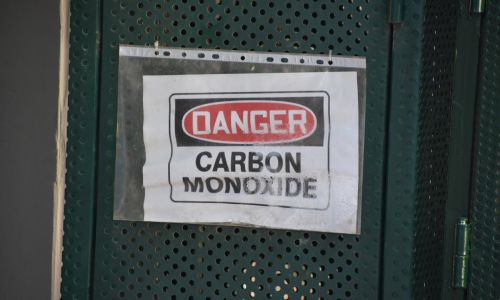Jacksonville, AL – Carbon monoxide (CO) safety is paramount for safeguarding against this colorless, odorless gas, known as the “silent killer.” CO is produced by the incomplete combustion of fossil fuels, such as gas, oil, coal, and wood, posing a severe risk if not properly managed. To ensure safety, it’s crucial to install carbon monoxide detectors in key areas of the home, particularly near bedrooms and heating appliances. Regular maintenance of fuel-burning appliances, chimneys, and vents is essential to prevent CO buildup. Never use generators, charcoal grills, or camping stoves indoors, as they can emit dangerous levels of CO. During winter, ensure proper ventilation when using space heaters and never leave them unattended. Symptoms of CO poisoning include headaches, dizziness, nausea, and confusion. If CO poisoning is suspected, evacuate the premises immediately and seek medical attention. By practicing vigilance and taking preventive measures, individuals can effectively mitigate the risks associated with carbon monoxide exposure.
Christie Shelton, Jacksonville University’s Provost and Vice President for Academic Affairs, recently opened up about a harrowing experience with carbon monoxide (CO) poisoning, emphasizing the critical importance of CO safety measures.
Shelton recounted a frightening week during spring break when she and her husband, Bryan, experienced extreme fatigue, shortness of breath, and confusion. Concerned about their symptoms, they sought medical attention, ultimately discovering excessive soot accumulation in their home. Subsequent investigation revealed a malfunctioning fireplace, leading to suspicions of carbon monoxide exposure.
Their ordeal prompted Shelton to advocate for CO awareness and preventive measures. She urges individuals to install carbon monoxide detectors, familiarize themselves with alarm sounds, and adhere to user manual guidelines for fuel-burning appliances. Shelton emphasizes the significance of trusting one’s instincts and taking swift action when sensing danger.
Shelton’s candid account serves as a poignant reminder of the potentially lethal consequences of carbon monoxide exposure and the importance of proactive safety measures. As she and her husband recover from their near-death experience, they are grateful for their safety and encourage others to prioritize CO safety in their homes.
The story underscores the importance of vigilance and education in preventing CO-related tragedies and highlights the impact of sharing personal experiences to raise awareness and promote safety within communities.






